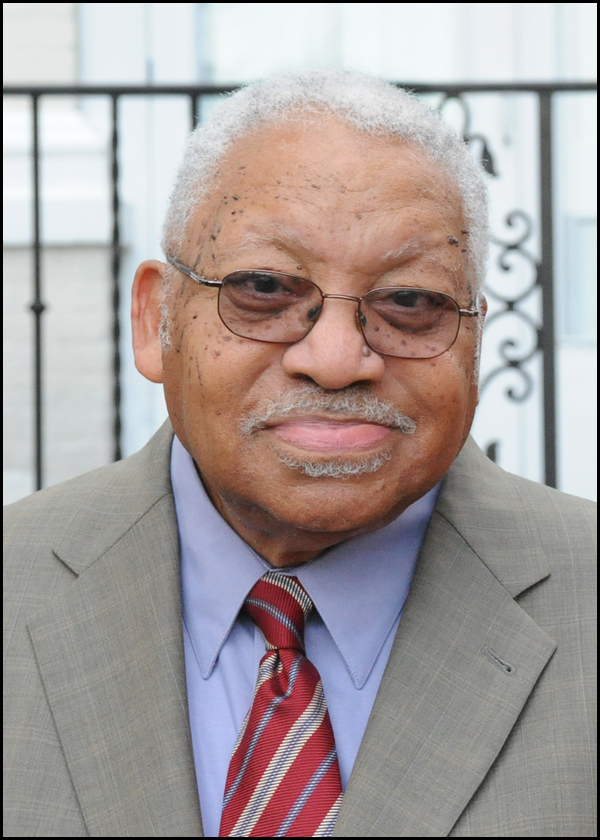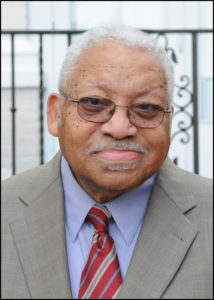Ellis Marsalis
Modern jazz pianist and leading jazz educator Ellis Marsalis was the patriarch of the musical New Orleans family that includes his sons trumpeter Wynton Marsalis and saxophonist Branford Marsalis, both internationally acclaimed modern jazz artists.

Courtesy of Defense Imagery.mil
Ellis Marsalis. LCpl. Tyson Dalgai (Photographer)
Modern jazz pianist and leading jazz educator Ellis Marsalis was probably best known as the father of trumpeter Wynton Marsalis and saxophonist Branford Marsalis, both internationally acclaimed modern jazz artists. However the elder Marsalis had a much greater influence on American jazz history in the last quarter of the twentieth century than it might appear. He was, for example, among only a handful of young musicians in New Orleans during the 1950s who chose to pursue careers in modern jazz at a time when rhythm and blues and traditional jazz dominated the local music scene.
He later made a midcareer decision to focus more seriously on music education, eventually becoming an impassioned advocate for the rightful place of jazz education in a formal academic setting. In addition, he helped establish a new perception of jazz and its place in American popular culture, transmitting some of his most deeply held beliefs through his sons (four of whom have become professional jazz musicians) and an initial wave of Marsalis-trained students prominent in jazz during the 1980s and 1990s. Marsalis’s method rested on teaching by example. Whether teaching or performing, he emphasized respect for modern jazz traditions and a heightened awareness of the role of the professional jazz musician. He also called for increased attention to jazz’s central function in articulating the underlying virtues of American culture.
Modern Jazz Pioneer
Marsalis was fourteen when he attended a Dizzy Gillespie concert in New Orleans and immediately became “a confirmed bebopper.” Just two years later, at the age of sixteen, he entered New Orleans’s Dillard University as a freshman. Through childhood friend Alvin Batiste, Marsalis met a Dillard University senior, Harold Battiste, who was recruiting a modern jazz band. With Ed Blackwell on drums and Richard Payne on bass, they called themselves The American Jazz Quintet and, in 1956, produced one of the first New Orleans modern jazz recordings.
Marsalis remained active in the small-but-fervent jazz scene in New Orleans for almost twenty years, performing with his own modern jazz group and as a member of trumpeter Al Hirt’s traditional New Orleans jazz band. In 1962, he took part in a recording by Nat Adderley and his brother, Julian “Cannonball” Adderley, both nationally prominent figures in the world of modern jazz. This occasion marked the first national exposure for modern jazz from New Orleans. When he began teaching music full-time in 1974, Marsalis continued to perform in New Orleans, soon becoming a featured artist at Snug Harbor, the city’s premier modern jazz club, often in solo performances. Thoroughly schooled in modern jazz, Marsalis developed his own lush, understated style that is both melodic and rhythmically moving. As the editors of The Penguin Guide to Jazz on CD described it, “One can easily hear where Wynton got his even-handed delineation of melody from, and where Branford’s aristocratic elegance of line is rooted.”
A Trailblazer in Jazz Education
Marsalis’s father was an independent black entrepreneur and his mother a champion of cultural education, but both discouraged their eldest child from becoming a professional musician. As a result, he graduated from Dillard University in 1955 with a B.A. in music education. In the summer of 1974, he enrolled in a master’s degree program at New Orleans’s Loyola University, and that fall, he was recruited to teach at the New Orleans Center for Creative Arts, a new magnet school for high school students.
In 1986, after receiving a master’s degree in music education from Loyola University, he accepted a position at Virginia Commonwealth University in Richmond, Virginia, where he created a jazz curriculum for the university’s school of the arts. In 1989, he returned to New Orleans as director of a new jazz studies program at the University of New Orleans, and remained there until his retirement in 2001. Since jazz instruction was relatively new in the 1980s and 1990s, Marsalis had the opportunity to develop his own approach, blending pragmatism with advocacy for jazz instruction. “Universities function primarily from a literate culture and jazz music existed and developed in an oral culture,” he once explained. “You learn music like you learn a language. … [T]o truly participate—to speak—you have to hear that language. … [And] you have to practice a lot or you don’t get very good at it. It’s the same process with music.”
An Inspirational Jazz Mentor
Combining a performing career with a teaching career, Marsalis created an ideal goal in which the jazz performer becomes both a model student and a model teacher. “I see them as the same thing,” he once remarked. “It’s just a different audience.” During the 1980s and 1990s, as both his sons and students became recognized as major figures in the world of jazz, it also became obvious that Marsalis’s approach to jazz education and jazz performance was proving quite effective. As a result, his national reputation as both a groundbreaking educator and a superb musician began to grow, in the process bringing greater attention to New Orleans as both an incubator for modern jazz musicians and an attractive destination for fledgling modern jazz students. In recognition of his mentoring and educational influence on sustaining the Louisiana musical tradition; Marsalis was awarded the 2008 Humanist of the Year Award by the Louisiana Endowment for the Humanities.
In recognition of those achievements, New Orleans poet and music historian Kalamu ya Salaam has described Marsalis as “both literally and figuratively the patriarch of modern jazz in New Orleans.” In addition to sons Wynton, Branford, Delfeayo, and Jason Marsalis, Ellis Marsalis can count pianist/vocalist Harry Connick Jr., trumpeter Terence Blanchard, saxophonist Donald Harrison, and trumpeter Nicholas Payton among his most successful students. In an essay titled “A Jazz Musician’s Work Ethic,” Marsalis stated the basis of his approach to learning, teaching, and performing jazz as succinctly as possible: “Be in the right place at the right time and with the right attitude and the right equipment, ready to do the job.”
Ellis Marsalis Jr. died on Wednesday, April 1, 2020, in New Orleans after being hospitalized with symptoms of the coronavirus.
